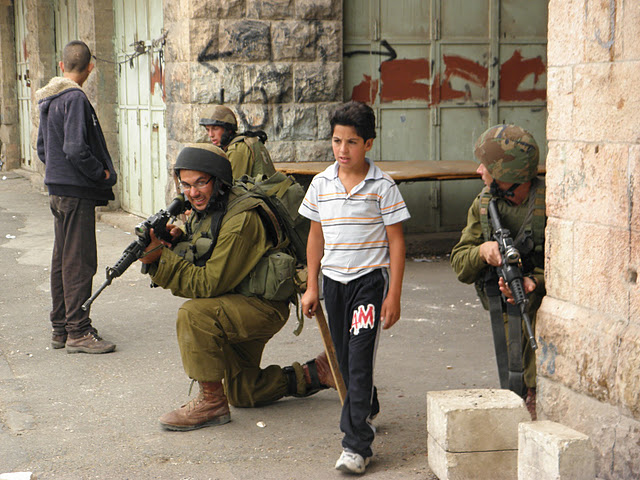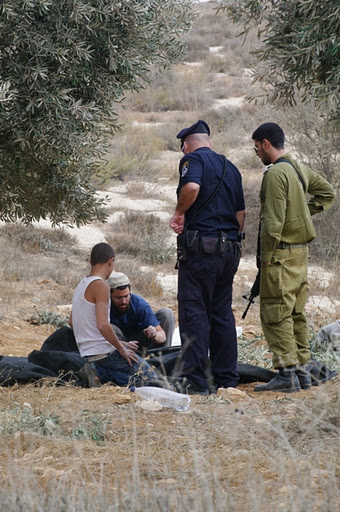Tag: Settlement
-
Eid in Sheikh Jarrah
by Wahed Rajol 7 November 2011 | International Solidarity Movement, West Bank ISM has maintained a daily presence at the al-Kurd residence in Sheikh Jarrah since August 2009 when Israeli authorities paved the way for Israeli settlers to occupy the front part of the family home. On the first night of Eid al-Adha, on November…
-
Settlers desperately try to fit the role by stealing olives
by Aida Gerard 25 October 2011 | International Solidarity Movement, West Bank On Tuesday, illegal settlers from the Susiya settlement harvested the olive trees belonging to the Abu Sabha family from Susiya and Yatta, South Hebron Hills. Around 12 o’ clock a villager from the area spotted two settlers picking olives from the land of…



